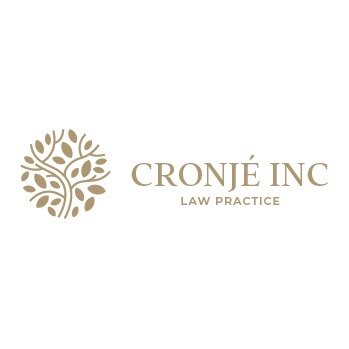Best Inheritance Law Lawyers in Windhoek
Share your needs with us, get contacted by law firms.
Free. Takes 2 min.
List of the best lawyers in Windhoek, Namibia
1. About Inheritance Law in Windhoek, Namibia
Inheritance law in Windhoek governs how a deceased person’s assets are distributed and who is entitled to them. In Windhoek, the High Court of Namibia handles probate and estate administration, including validating wills and appointing executors or administrators. The process covers both testate cases (with a will) and intestate cases (without a will).
Key tasks include proving the validity of the will, valuing assets, settling debts, and distributing remaining property to heirs or beneficiaries. Practically, this means coordinating titles, bank accounts, real estate, and any overseas assets under Namibian law. The rules also address claims by spouses, children, and other dependents, as well as potential challenges to the will.
2. Why You May Need a Lawyer
- You are named as executor or administrator and must obtain Letters of Administration or probate from the High Court in Windhoek. A lawyer can prepare and file the necessary court papers and guide you through court requirements.
- The will is vague or ambiguous, creating disputes among beneficiaries or with a surviving spouse. A solicitor or attorney can interpret clauses and propose a practical distribution plan.
- The estate includes Windhoek real property or other Namibian assets and requires title transfers, debt settlement, or creditor notice. Legal counsel coordinates notices and ensures compliance with local procedures.
- There are creditors, taxes, or estate duties to settle before distribution. An attorney can negotiate with creditors and protect heirs from personal liability.
- There is a potential challenge to the will or a dispute about capacity, undue influence, or lack of testamentary capacity. A lawyer can represent you in court and present evidence.
- Assets exist outside Namibia or beneficiaries reside abroad, requiring cross-border coordination. A Namibian attorney can collaborate with foreign counsel and manage jurisdictional issues.
3. Local Laws Overview
Administration of Estates Act, 1965 (Act No. 66 of 1965) governs probate and estate administration in Namibia. It provides for the appointment of executors or administrators, asset collection, debt payment, and distribution to heirs. The High Court of Namibia oversees these processes and issues necessary orders. See procedural guidance on the Judiciary of Namibia website: Judiciary of Namibia.
Namibian Constitution and common law principles shape succession rights, including protections for spouses and children in intestate distributions. Court rules and local practice guide how these rights are implemented in Windhoek. For practical court procedures, refer to the High Court rules and Windhoek court offices.
Recent developments emphasize streamlining probate processes and expanding access to legal aid in Windhoek. Updates come from official judiciary communications and legal aid organizations, reflecting a trend toward faster, more transparent administration of estates. See sources from the Judiciary and the Legal Assistance Centre for current guidance: Judiciary of Namibia and Legal Assistance Centre Namibia.
Sources: Judiciary of Namibia, Legal Assistance Centre Namibia, Government of Namibia.
4. Frequently Asked Questions
What is probate in Windhoek?
Probate is the legal validation of a will and authority given to the executor to administer the estate. In Windhoek, the High Court handles probate applications and may require asset valuations and debt settlement.
How do I start probate in Windhoek?
Obtain the death certificate and locate the will if present. Engage a lawyer to prepare the probate petition for the High Court and file the necessary documents.
What is an administrator of an estate?
An administrator handles estate administration when there is no valid will. The High Court appoints an administrator who collects assets, pays debts, and distributes remaining assets to heirs according to intestate rules.
How much does it cost to hire an inheritance lawyer in Windhoek?
Fees vary by case and firm. Lawyers may charge a retainer plus hourly rates or a fixed fee for straightforward matters. Request a written estimate and a probable total cost.
How long does probate take in Windhoek?
Probate duration depends on complexity, asset type, and potential disputes. In Windhoek, cases can take several months to over a year from filing to final distribution.
Do I need a will to avoid intestate succession?
Yes. A valid will directs asset distribution and simplifies probate. Without a will, the estate follows statutory intestate rules, which may not reflect your wishes.
Can non-residents inherit property in Windhoek?
Non-residents can inherit under Namibian law, but transferring title may require compliance steps for non-residents and possible tax considerations. Consult a lawyer for cross-border issues.
Should I contest a will in Windhoek?
Contesting a will is possible if there is evidence of invalidity, coercion, or lack of capacity. A legal counsel can assess grounds, evidence, and court strategy.
Do I need to be a named beneficiary to obtain estate information?
No. Interested parties can request information through a lawyer. The executor must provide reasonable information as required by law.
Is there an inheritance tax in Namibia?
Namibia does not levy an inheritance tax. Estate administration may include filing and court costs, and creditors may claim against the estate before distribution.
How do I find a good inheritance lawyer in Windhoek?
Ask for referrals from the Legal Assistance Centre Namibia, check track records, and schedule initial consultations to compare approaches and fees.
What is the difference between executor and administrator?
The executor administers a will according to its terms, while an administrator handles estate matters when there is no will. The High Court appoints the appropriate role.
5. Additional Resources
- Legal Assistance Centre Namibia (LAC) - Provides legal information on wills, estates, and probate; offers free or low-cost assistance and referrals. https://www.lac.org.na
- Judiciary of Namibia - Official source for probate procedures, High Court rules, and case management in Windhoek. https://www.judiciary.na
- Government of Namibia - Central portal with legal system information, service points, and official notices relevant to estate matters. https://www.gov.na
6. Next Steps
- Define your goals for the estate plan or probate process and gather essential documents such as the death certificate, will (if any), property deeds, bank statements, and outstanding debts. Complete this within 1-2 weeks.
- Determine whether probate or administration is required by reviewing the presence of a valid will and the extent of assets. If unclear, consult a Windhoek inheritance lawyer within 1-2 weeks.
- Identify 2-3 qualified inheritance lawyers in Windhoek. Check their experience in estate matters, fees, and eligibility for a first consultation. Plan visits over 2-4 weeks.
- Request an initial consultation to outline strategy, costs, and timelines. Bring all documents and ask for a written retainer agreement; expect this to take place within 1 week after shortlist.
- Prepare and file the probate petition or administration application with the High Court. Your attorney will guide document preparation and court filing; allow 4-12 weeks for filing depending on complexity.
- Engage with creditors, heirs, and asset valuations as directed by your lawyer. Attend hearings or meetings as needed; timelines vary by case and court calendars.
- Monitor progress and receive the grant of probate or letters of administration. With straightforward matters, this can occur within 6-12 months; complex cases may take longer.
Lawzana helps you find the best lawyers and law firms in Windhoek through a curated and pre-screened list of qualified legal professionals. Our platform offers rankings and detailed profiles of attorneys and law firms, allowing you to compare based on practice areas, including Inheritance Law, experience, and client feedback.
Each profile includes a description of the firm's areas of practice, client reviews, team members and partners, year of establishment, spoken languages, office locations, contact information, social media presence, and any published articles or resources. Most firms on our platform speak English and are experienced in both local and international legal matters.
Get a quote from top-rated law firms in Windhoek, Namibia — quickly, securely, and without unnecessary hassle.
Disclaimer:
The information provided on this page is for general informational purposes only and does not constitute legal advice. While we strive to ensure the accuracy and relevance of the content, legal information may change over time, and interpretations of the law can vary. You should always consult with a qualified legal professional for advice specific to your situation.
We disclaim all liability for actions taken or not taken based on the content of this page. If you believe any information is incorrect or outdated, please contact us, and we will review and update it where appropriate.













